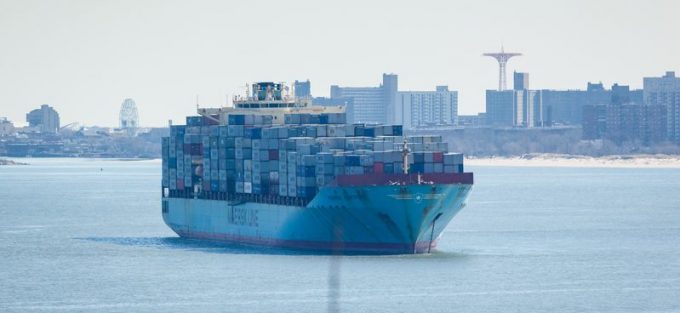Sudden spike belies 'boring' transatlantic airfreight market
On the face of it, transatlantic air trade between Europe and North America has been ...

Maersk has suspended an Asia-US east coast loop, confirming that transpacific ocean carriers are seeing a reduction in bookings to North American ports on both the Pacific and Atlantic coasts.
The carrier announced the last sailing of its TP28 pendulum service would be performed by the ...

Comment on this article